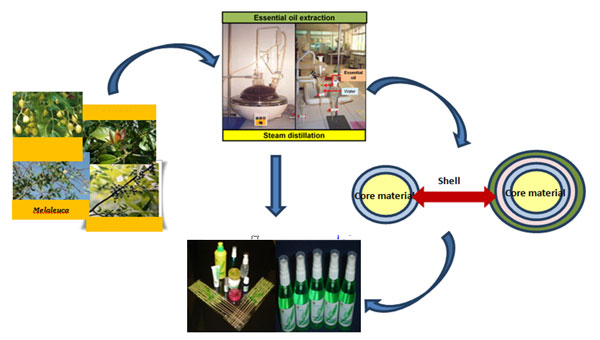Vector control
Using insecticide is still the main method for controlling the insect vectors especially when outbreak occurs. Pyrethroid insecticides are widely used in the vector control program. The insecticide resistance in mosquito has been reported in some areas. Study on the insecticide susceptibility of the insect vectors, the distribution of the resistance gene is essential in order to provide the information for the decision maker of the vector control program for planning the control measure.
Insecticide research unit
The Insecticide Research Unit provides biological testing and analysis service on insecticide products such as mosquito coil, wet insecticide impregnate net. The testing including bioassay of insecticide susceptibility of the insects (especially, mosquitoes, fly and cockroach), the efficacy and persistance of the insecticide products and repellents product followed WHO standard procedure.
Using insecticide is still the main method for controlling the insect vectors especially when outbreak occurs. Pyrethroid insecticides are widely used in the vector control program. The insecticide resistance in mosquito has been reported in some areas. Study on the insecticide susceptibility of the insect vectors, the distribution of the resistance gene, the kdr gene, are essential in order to provide the information for the decision maker of the vector control program for planning the control measure.
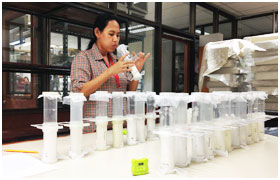
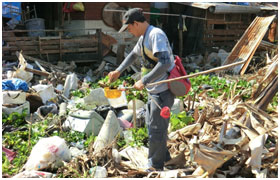
Dipping mosquito larvae
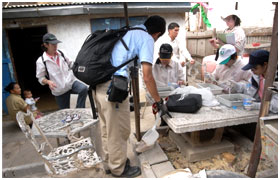
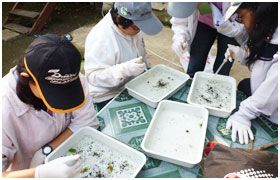
Counting the number of larvae after larvicide spraying
In the year 2011 big flooding occurred in Thailand. Flooding persisted in some areas until mid-January 2012. Sixty-five of Thailand’s 77 provinces were declared flood disaster zones. The huge piles of trash garbage and sewage within the waters were expected to peak when waters subside leaving behind stagnant pools of water. These provided a lot of breeding places of the mosquitoes. Department of Medical Entomology collaborate with NGO (Nippon International Cooperation for Community Development, NICCO) and provate sector (Thailand Pest Management Association, TPMA) conducted the field operation research to control the mosquitoes. Evaluation of the effectiveness of the integrated methods for mosquito control was performed. The integrated methods were fogging to reduce adult mosquito, using larvicide to control mosquito larvae and promote community participation by having many activity such as giving health education, social activity for example the cleaning day for eliminating the garbage and breeding site of flies and mosquito around their community. Beside the chemical insecticides colaboration with NSTA, the research on the efficacy of the biopesticide, the Bacillus thuringiensis israensis (Bti) and Bacillus sphearicus (Bs), to control the mosquito larvae after flooding situation, was also conducted.
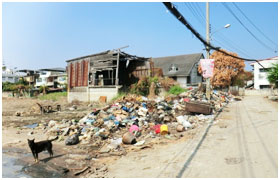
Garbage after flood disaster
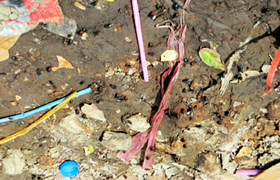
A lot of flies

Million of Culex eggs
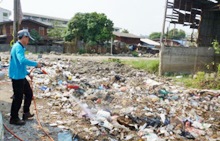
Spraying insecticide on the garbage.
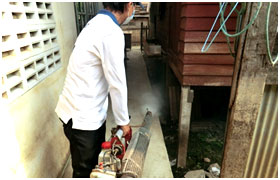
Spraying insecticide
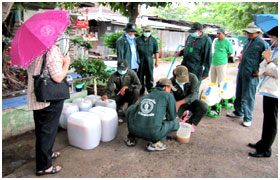
Preparing Bti and Bs solution for control mosquito larvae

Cleaning day
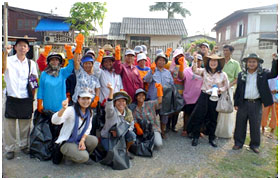
Alternative Insecticide and Repellents
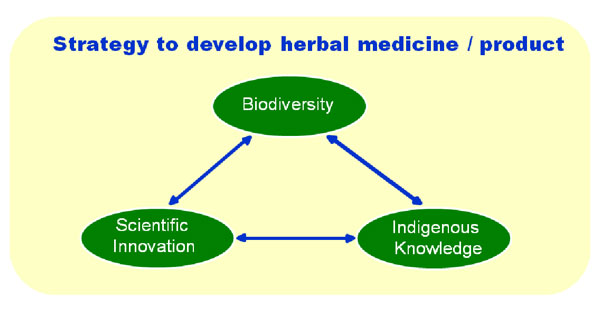
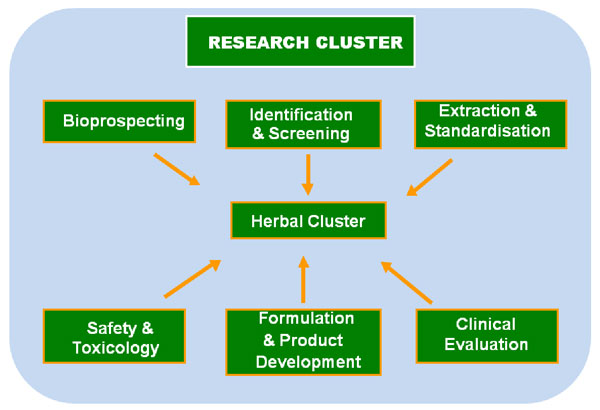
Alternative Insecticide and Repellents: on the basis of cost-effectiveness and safe and finally develop practical applications for the promising formulations in the simplest way to reach the local populations for self protection against a wide variety of insect vectors including mosquitoes, cockroaches, bed bugs, ticks and flies.

Micro/Nanocapsule for Developing Mosquito Repellent:
Essential oils is easily oxidized and vaporized cause it unsuitable to kept for long term use so new form of mosquito repellent product should be developed. By using encapsulation technique to prepare essential oil in microcapsule, capsule shell can enhance stability of essential oil such as protection from the oxidization or labile of active ingredients and also can control releasing rate of active volatile compound.
